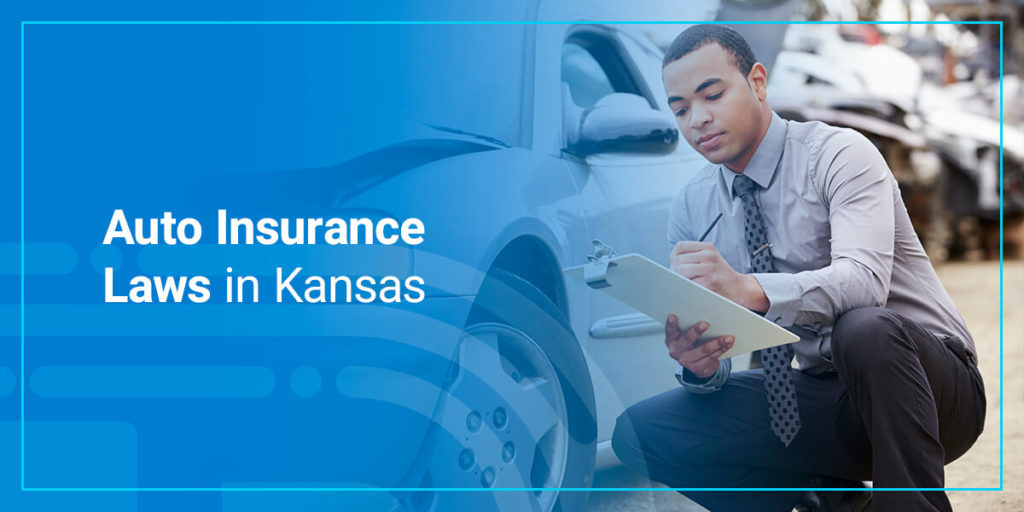
Car insurance is a necessary expense that protects you and your vehicle in the event of an accident, collision or other types of damage. Auto insurance laws can vary widely from state to state, but Kansas usually requires more auto insurance coverage than most states. When shopping for the right policy, it’s important to know the basic Kansas auto insurance requirements. These requirements can help you adjust your coverage according to what you can afford, your driving habits or risk factors.
Liability coverage is also essential for protecting your finances, property and assets. Without the proper coverage, you may have to pay for medical expenses or vehicle repairs out of pocket, which can be financially devastating. Consider Kansas insurance laws when shopping for the best premiums for your vehicle.
Jump To:
Kansas insurance regulations consist of four individual types of required coverage under auto insurance. Each one consists of different levels of coverage and varying minimums. Though these required coverages have baselines, they are not a limit as to how much coverage you should have. You may want to get more coverage than the minimum to further protect your vehicle, assets and passengers.
You can use the following information as a guide to auto insurance.
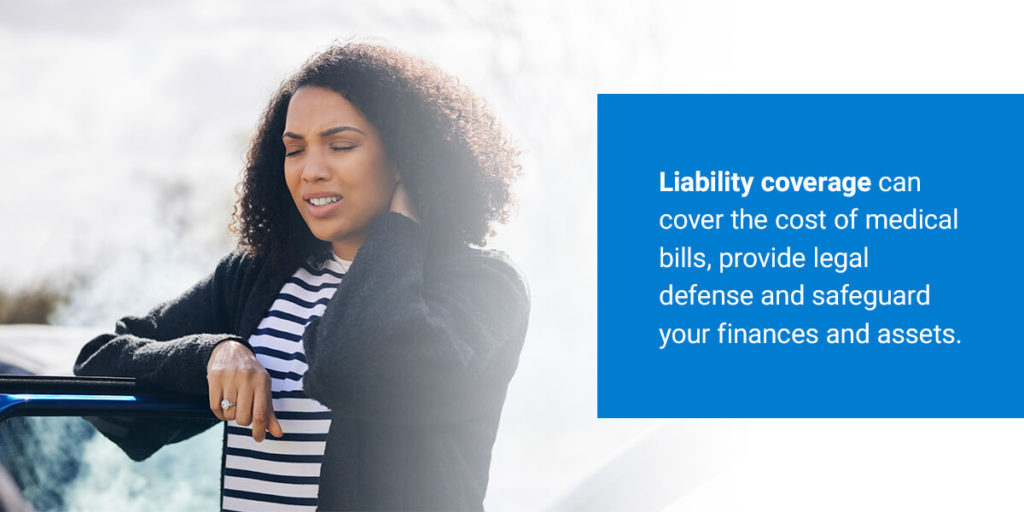
In Kansas, your insurance policy must include liability coverage for both bodily injury and property damage. Liability insurance is important in the event of a lawsuit after a covered accident occurs. Liability coverage can cover the cost of medical bills, provide legal defense and safeguard your finances and assets. This type of auto insurance covers injury costs for the other party if you or your family are legally responsible or at fault in a car accident. Some of the expenses this coverage pays for can include:
Bodily injury liability insurance also covers the cost of settlement of lawsuits and legal expenses if you are sued due to bodily injury. This coverage may additionally help pay for or cover certain expenses related to bodily harm for other parties. The Kansas minimum insurance coverage for bodily injury is:
However, if you accidentally injure someone in a car accident and their medical expenses exceed your liability coverage limits, you may have to pay out of pocket for additional expenses. This could be a reason why you may want to opt for more coverage than the state requires to best fit your situation and increase your liability limits.
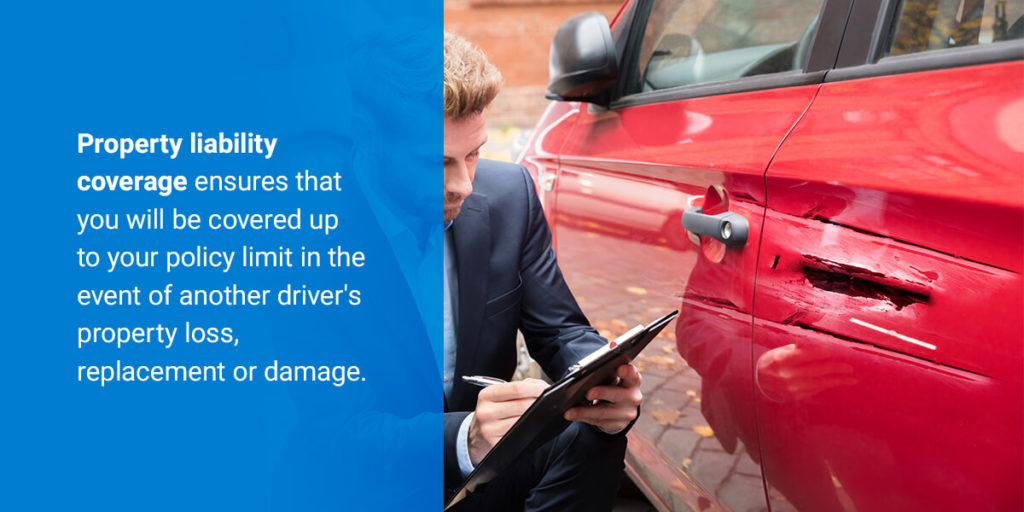
Property damage liability is another type of required liability coverage in Kansas. This insurance pays for certain expenses when you or your family members damage other property in a covered accident and are legally found at fault or mostly at fault. Property damage could occur if you hit someone else’s car, bumper, front porch, mailbox or cause any other damage that requires repairs. Liability coverage may help cover the necessary expenses in these instances. Some of the costs this coverage may pay for include:
Property liability insurance can also cover legal expenses if you are at fault for a car accident. Just as with bodily injury liability coverage, Kansas requires that residents hold a minimum coverage for property damage. This liability coverage ensures that you will be covered up to your policy limit in the event of another driver’s property loss, replacement or damage.
The minimum coverage required in Kansas for property damage liability is $25,000 per accident. However, if the property damage exceeds your policy limit, such as in the event of a serious accident or significant property damage, you may be required to provide additional compensation out of pocket.
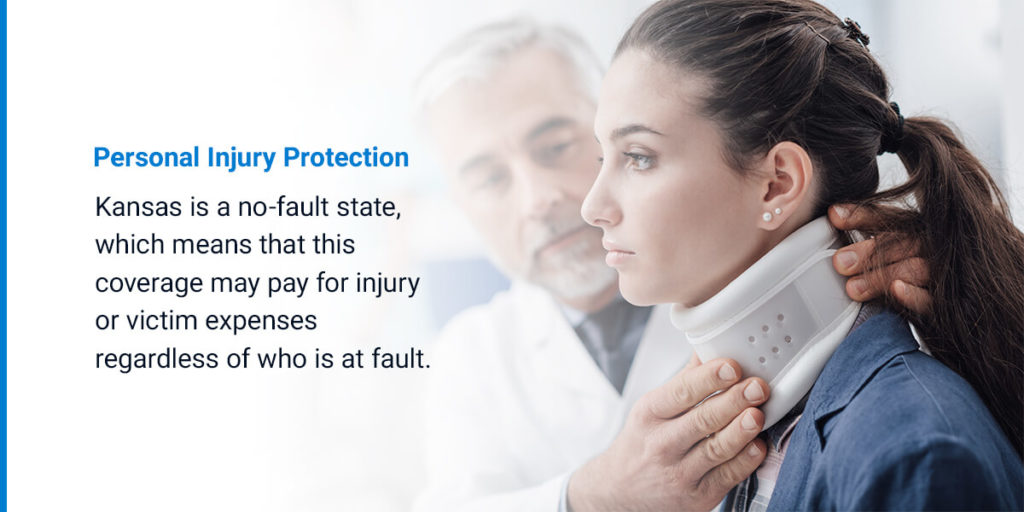
Personal Injury Protection (PIP), also known as no-fault insurance, covers the cost of particular needs for you and other passengers injured in an accident, such as:
Kansas is a no-fault state, which means that this coverage may pay for injury or victim expenses regardless of who is at fault. Each driver must pay up to their policy limit for medical expenses but may receive a payout from the at-fault party if their PIP limit has been reached. After an accident, you will receive benefits and any other necessary medical treatment under your PIP coverage. In Kansas, the minimum coverage for this protection must include:
Your PIP must also include survivor benefits such as:
PIP insurance aims to cover certain out-of-pocket expenses for the injured up to the policy limit. However, PIP does not cover non-economic damage associated with motor vehicle accidents.
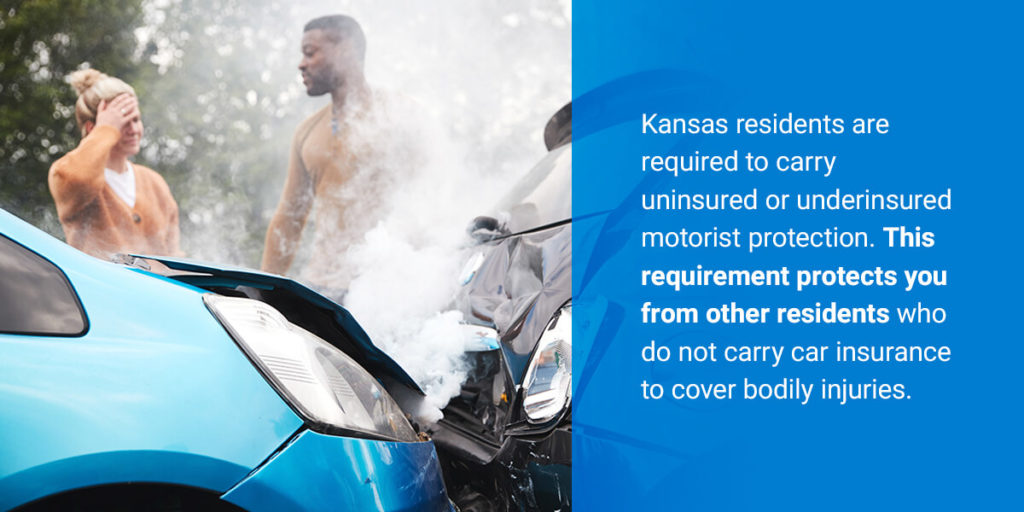
Kansas residents are also required to carry uninsured or underinsured motorist protection. This requirement protects you from other residents who do not carry car insurance to cover bodily injuries. This insurance protects you if you happen to get into an accident with someone who does not have the required insurance or has insufficient insurance. If the other party does not have enough insurance, they most likely won’t be able to cover your medical bills, damages or rehabilitation costs.
Uninsured motorist protection insurance pays for you or your passengers for medical, rehabilitation and funeral costs. Uninsured motorist protection may also pay for settlements of lawsuits resulting from an accident caused by an uninsured or underinsured motorist. With this required coverage, you and your family are also protected from additional aspects that this insurance covers, including:
The required minimum for uninsured or underinsured coverage in the state of Kansas is:
As with any auto insurance, it is always best to purchase as much coverage as you can afford to protect yourself in the event of an accident or bodily injury. If an uninsured motorist seriously injures you, you may have to take time off work and require ongoing medical care. Additional uninsured motorist protection above the minimum Kansas requirement may help to fully compensate you for your injuries or damages in this case.
Kansas auto insurance laws require that all drivers must carry the minimum insurance coverage. If you are caught driving without the minimum required coverage, you can be stripped of your driving privileges and face many penalties until you can provide proof of insurance. Failing to carry insurance or provide proof of coverage is considered a misdemeanor in Kansas, which can lead to jail time. Driving repeatedly without required auto insurance coverage can also lead to other severe legal consequences, including:
Depending on how many times you are caught driving without insurance, these legal and financial consequences can increase or vary. For example, additional offenses for driving without coverage within three years can increase your fines to a maximum of $2,500. These fines and consequences are enough to warrant the expense of car insurance.
If you get into an accident and do not meet the Kansas car insurance requirements, you will be held responsible for the cost of vehicle repairs or medical expenses that your insurance does not cover. You may also have to pay for legal fees, defense and settlements out of pocket without car insurance.
In addition to Kansas minimum insurance, there are different types of optional coverage that fall under car insurance. These optional coverages can help fill in any gaps in your car insurance and increase your policy limit protections. Consider your risk tolerance and determine which add-ons may be a good fit for you.
Here are some additional coverages you can add to your auto insurance plan as a Kansas resident:
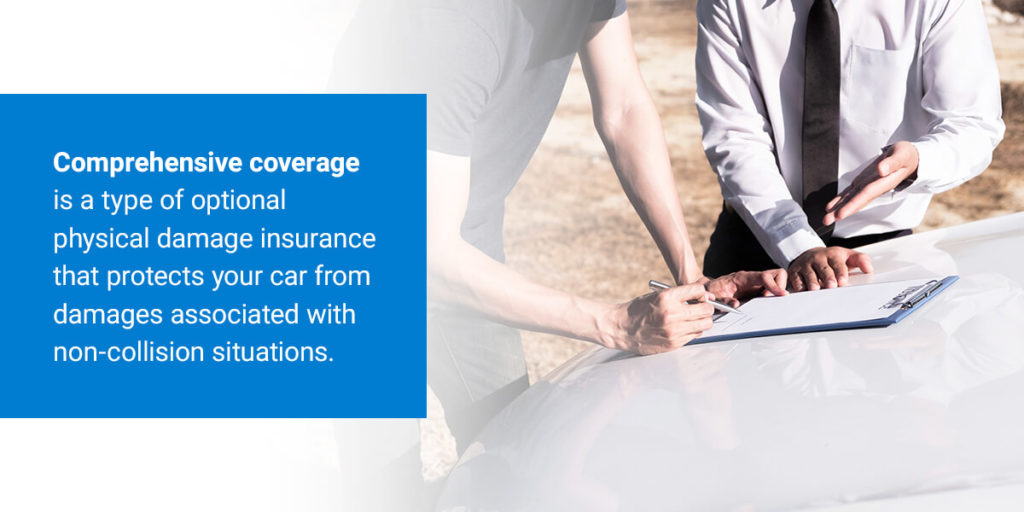
Comprehensive coverage is a type of optional physical damage insurance that protects your car from damages associated with non-collision situations. Comprehensive coverage is available as an addition to most car insurance policies and protects against damage or loss related to:
Comprehensive coverage can act as an umbrella term for protection against accidents that don’t involve direct collisions — other than with animals. Comprehensive coverage helps to replace or repair your vehicle if it falls under one of these categories of coverage. Your policy will often cover the remaining cost of damages once you pay your deductible. If you are financing or leasing your car, you may be required to have comprehensive coverage.
However, even if you have paid off your vehicle, comprehensive coverage is still worth adding to your insurance for protection against physical damage.
Collision insurance, unlike comprehensive insurance, covers physical damage to your vehicle caused by collisions. These collisions could include accidents with another vehicle or stationary or fixed objects. This coverage is often required for those leasing or financing their vehicles — however, it is optional for most Kansas residents. If you own an expensive or high-value car, this type of coverage is often highly recommended.
Some additional occurrences that collision insurance covers include:
Collision insurance may also be subject to a deductible that requires you to pay a certain amount before your car insurance covers the rest of the expenses. Luckily, this coverage often applies regardless of fault.
Gap coverage, also known as loan or lease coverage, is another optional addition to your car insurance policy. Gap coverage is often highly recommended for those who have a high-value or brand-new car. Cars tend to depreciate in value quickly, so if you have a loan on your car, this coverage may be worthwhile to protect your investment. This type of coverage is beneficial for those who lease or finance their vehicle in case it gets totaled.
Making payments on a car that has been totaled can be financially devastating. Essentially, this insurance will cover the financial gap between what an insurance company will pay for your car if it is totaled and the amount you owe to the dealership. Many car insurance policies reimburse you based on the actual cash value of your vehicle and not the replacement cost value, so without gap coverage, you may end up owing more on your loan than your car is worth.
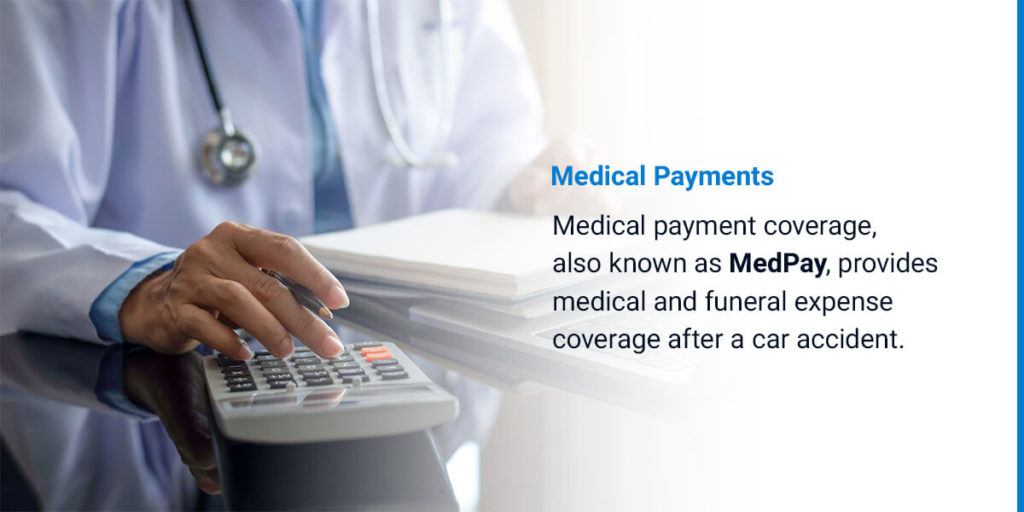
Medical payment coverage, also known as MedPay, provides medical and funeral expense coverage after a car accident. This coverage will help pay medical bills for injuries that affect you or other passengers in your car and can be applied regardless of fault. This optional medical car insurance will cover you up to your policy’s limits without a deductible.
The costs that MedPay may cover are only related to bodily injuries sustained directly from a car accident, such as:
Rental car reimbursement coverage is another helpful option for those who don’t already have rental car protection as an extension of their car insurance. Rental car reimbursement provides coverage for the cost of a rental vehicle if your car should need to be repaired or replaced after a covered accident.
With rental car reimbursement, the expenses of a substitute vehicle will be covered as long as it falls under your insurance policy. Rental car coverage often aligns with comprehensive and collision coverage relating to covered losses, including:
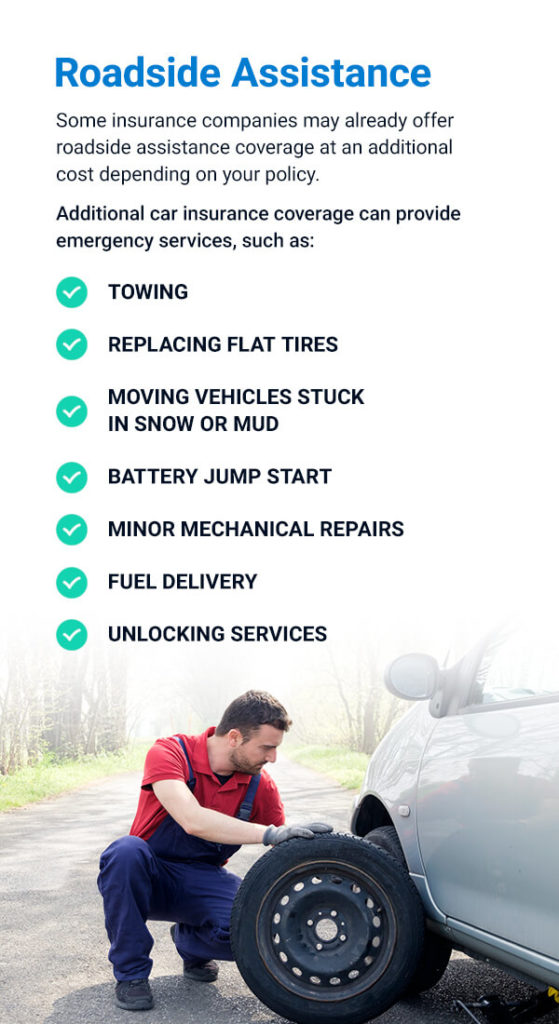
If you have ever had car trouble while driving, such as a dead battery or flat tire, roadside assistance is an option for you. This additional coverage acts as a safety net for any unforeseen problems. Mechanical issues can cause you to be stranded on the highway or cause your car to break down on the side of the road.
Some insurance companies may already offer roadside assistance coverage at an additional cost depending on your policy. This additional car insurance coverage can provide emergency services, such as:
If your car has had a long history of significant damage, it may have a diminished value. Diminished value refers to the decrease in value after involvement in an accident. These occurrences make your car’s value less than similar vehicles that have not experienced a collision. After a car accident, even if your vehicle is repaired to its original condition, it’s market and resale value may still be largely reduced.
There are three different types of diminished value that you may experience with your vehicle, including:
Kansas is a diminished value state, which means that you may be allowed to recover the diminished value of your vehicle after an accident from the at-fault party’s insurance. After an accident, you can file a claim to get back the losses you might experience if you want to sell your car. In order to make a diminished value claim in Kansas, however, you must meet certain requirements. Your case must align with the following:
Many different factors contribute to your specific auto insurance rates and policies as a resident in Kansas. Here is some additional information about how car insurance rates are determined and what you can do to lower your costs.
Car insurance rates vary by state for many different reasons, but they are largely determined by two standard procedures:
Here are the three basic rating categories for drivers applying for car insurance:

Each licensed driver in Kansas will receive a unique car insurance rate depending on many personal factors. Some of the most common factors are age, gender, marital status and driving history. Age is one of the biggest factors taken into account for car insurance rates, as younger drivers tend to pay higher premiums due to less experience.
These factors often determine premiums, but your credit score, zip code, vehicle, driving violations, miles driven and other elements also contribute to the cost of your insurance rates in Kansas. On average, Kansas residents pay about $1,358 for annual car insurance. Kansas minimum coverage rates are slightly lower than the national average, which is good news for Kansas residents seeking auto insurance.
However, those who live in a highly-populated area of Kansas, such as Kansas City, usually pay higher rates than those who live in rural areas. In any case, it is always wise to compare different carrier rates, personalized options and customer service to determine the best car insurance for you.
Shopping around and comparing prices from different carriers in Kansas is the best way to ensure that you are not overpaying for auto insurance. You should also remember a few tips if you want to lower your car insurance rate, including:
Additionally, Kansas drivers can take advantage of any available discounts to get the cheapest car insurance rates possible. Many auto insurance companies will offer discounts such as:

Simplify your car insurance search with David Pope Insurance Services, LLC. We offer flexible, low rates and premiums for a variety of drivers in the state of Kansas and many other areas. David Pope Insurance is a family-owned company committed to providing fast quotes that are customized to your needs while maintaining high-quality insurance for all drivers. We are proud to assist new drivers, teen drivers and those with different driving history records.
With our local, personalized service and budget-friendly rates, we will make it easy for you to find the right policy. We can help you keep costs low with our special discounts while protecting your assets and giving you peace of mind when driving.
To learn more information about the services and insurance we offer, contact us today or visit our website to request a quote for your custom policy.